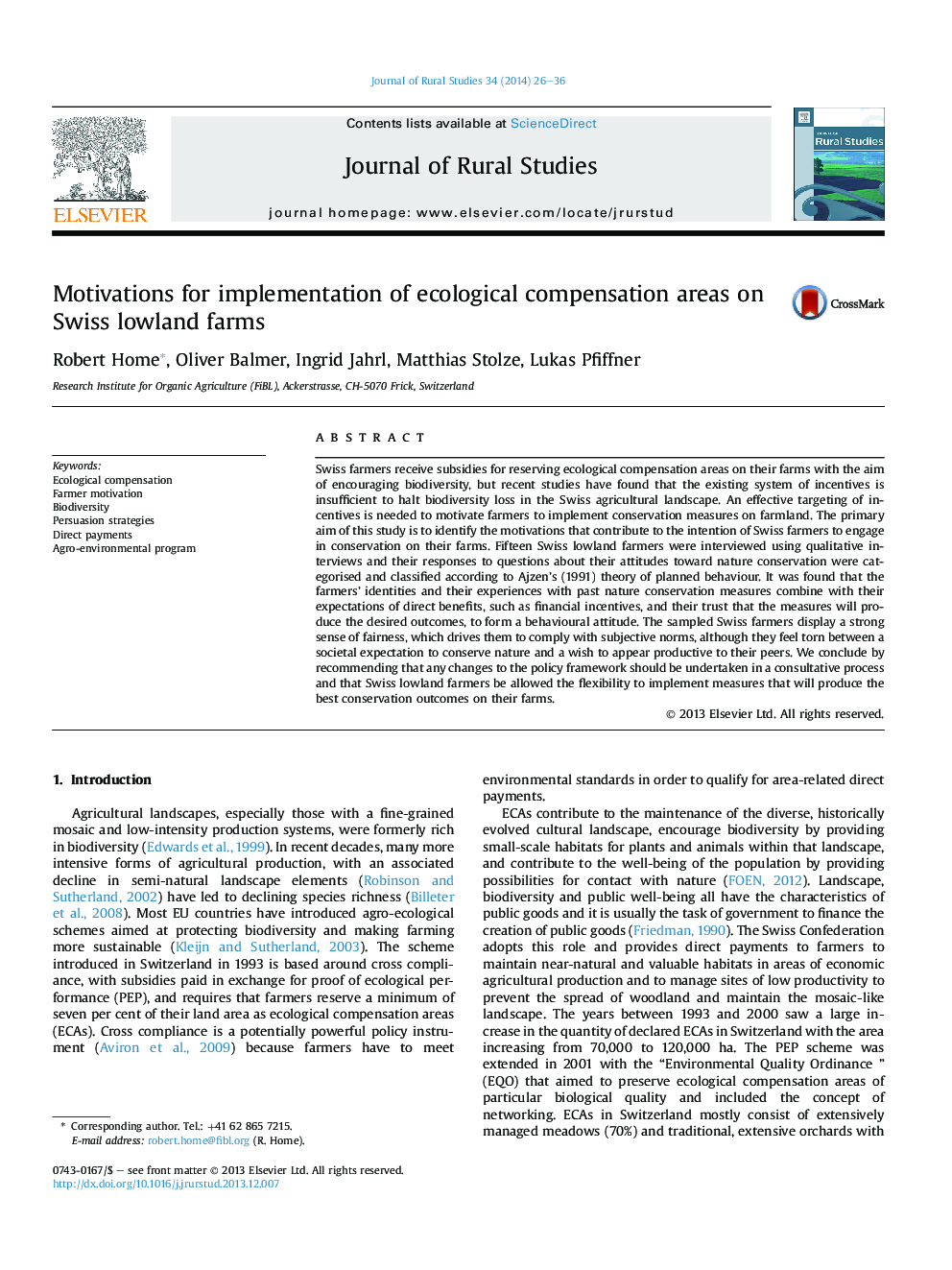| Article ID | Journal | Published Year | Pages | File Type |
|---|---|---|---|---|
| 6545797 | Journal of Rural Studies | 2014 | 11 Pages |
Abstract
Swiss farmers receive subsidies for reserving ecological compensation areas on their farms with the aim of encouraging biodiversity, but recent studies have found that the existing system of incentives is insufficient to halt biodiversity loss in the Swiss agricultural landscape. An effective targeting of incentives is needed to motivate farmers to implement conservation measures on farmland. The primary aim of this study is to identify the motivations that contribute to the intention of Swiss farmers to engage in conservation on their farms. Fifteen Swiss lowland farmers were interviewed using qualitative interviews and their responses to questions about their attitudes toward nature conservation were categorised and classified according to Ajzen's (1991) theory of planned behaviour. It was found that the farmers' identities and their experiences with past nature conservation measures combine with their expectations of direct benefits, such as financial incentives, and their trust that the measures will produce the desired outcomes, to form a behavioural attitude. The sampled Swiss farmers display a strong sense of fairness, which drives them to comply with subjective norms, although they feel torn between a societal expectation to conserve nature and a wish to appear productive to their peers. We conclude by recommending that any changes to the policy framework should be undertaken in a consultative process and that Swiss lowland farmers be allowed the flexibility to implement measures that will produce the best conservation outcomes on their farms.
Related Topics
Life Sciences
Agricultural and Biological Sciences
Forestry
Authors
Robert Home, Oliver Balmer, Ingrid Jahrl, Matthias Stolze, Lukas Pfiffner,
